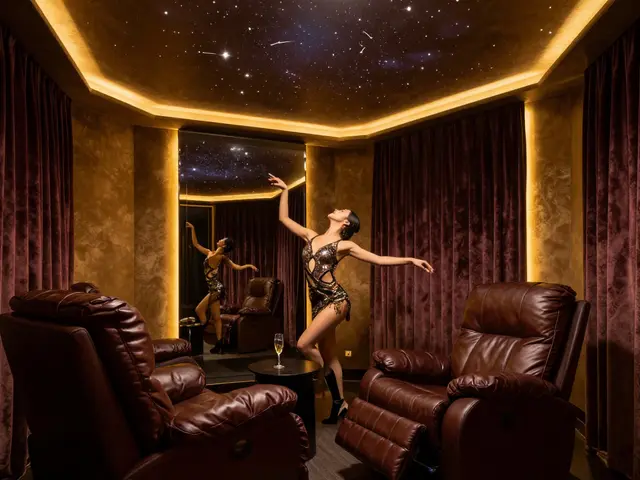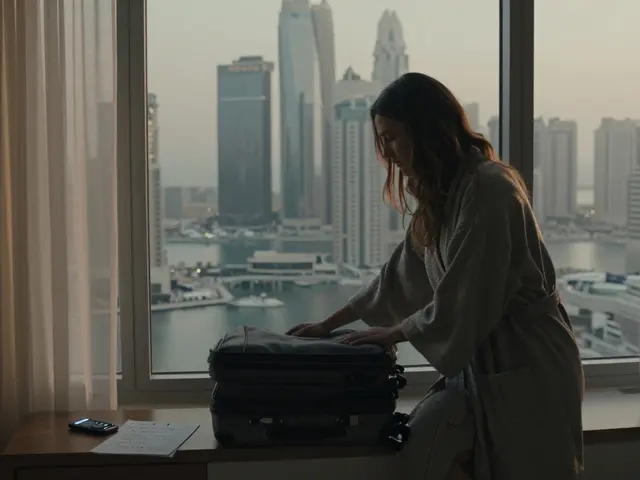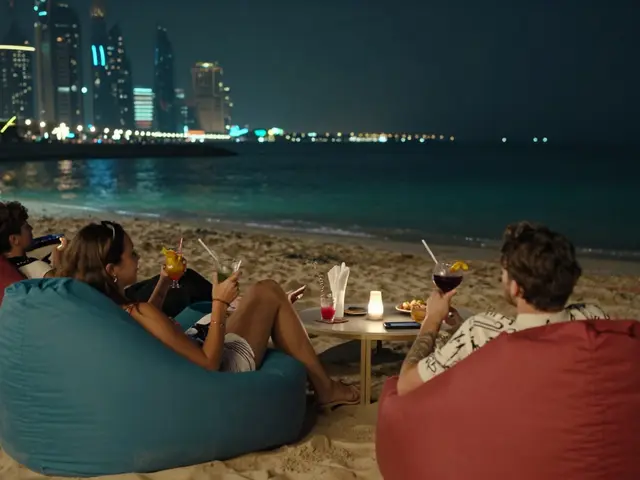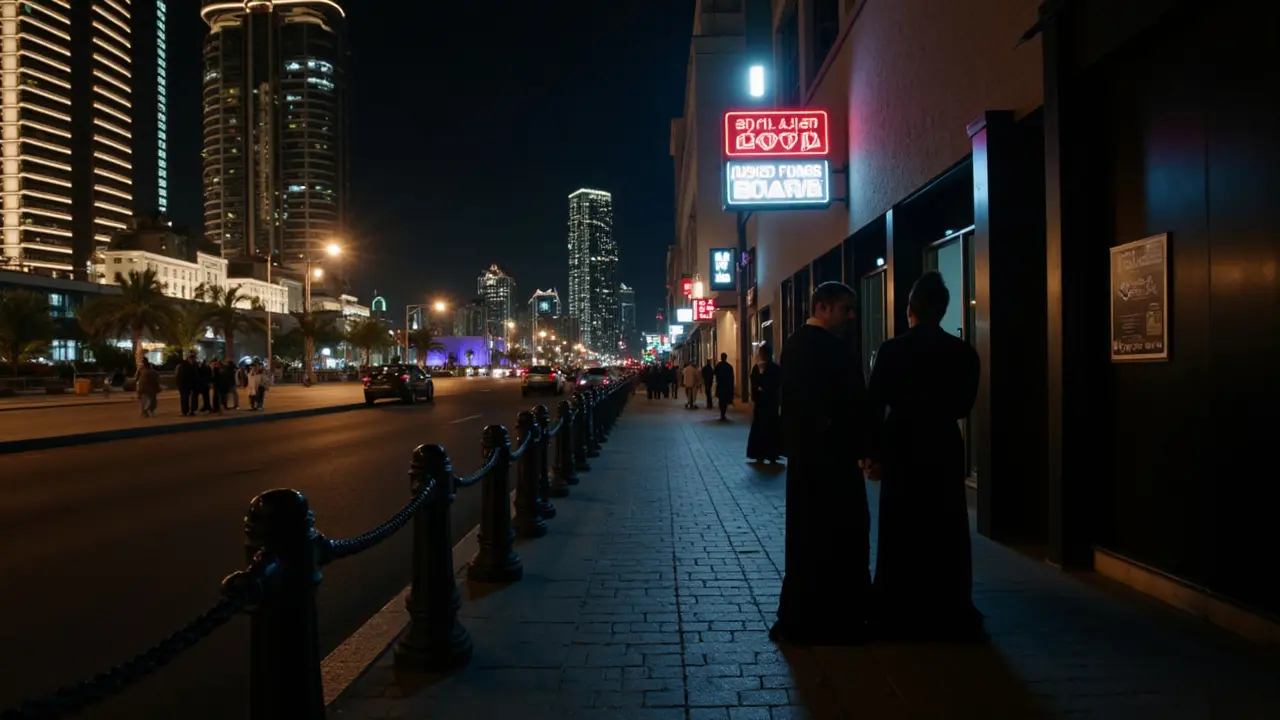
The Dark Reality of Strip Clubs in Dubai: Law, Risks & Hidden Stories
The Hidden World Behind Dubai’s Nightlife: Strip Clubs in the Shadows
Dubai’s reputation as a sparkling land of luxury, record-breaking towers, and non-stop nightlife draws people from all over. But step off the neon-lit main streets, and there’s a grittier reality pulsing just beneath the surface. While the city boasts beach parties, upscale clubs, and every type of cuisine, you can’t just waltz into a strip club like you might in Las Vegas, London, or Bangkok. Here’s where things get interesting, and a bit risky: strip clubs in Dubai are totally illegal, yet rumors and whispers about their existence swirl through certain circles—expats, ultra-rich tourists, and even some locals with the right connections.
If you’ve ever heard someone brag about wild Dubai nights or hidden VIP 'gentlemen’s clubs,' they weren’t exaggerating about the secretive vibe. But there’s way more going on than most people realize. Dubai’s laws about public morality and decency are fierce; even cross-dressing can get you locked up or deported. Yet, underground venues—disguised as karaoke bars, lounges, or massage spas—do exist. They’re not marked on any maps. Instead, networks of promoters, taxi drivers, or wealthy regulars offer coded invitations or a “friend of a friend” introduction. The risk of running afoul of the law is real and constant, yet that risk just seems to add to the edgy allure.
Unlike in Western cities, where strip clubs are legal and licensed businesses, in Dubai every step is shadowed by secrecy. Staff are told to keep quiet. Dancers and hostesses are usually recruited from overseas, often from Eastern Europe, East Asia, and Africa. Many arrive dreaming of high wages but soon realize they’re caught in a web of strict rules, contracts, or worse, outright exploitation. To make things even murkier, police are known for conducting surprise raids, sometimes clearing out entire venues in minutes, yet venues reopen just as quickly in another part of town. Ever heard the phrase 'open one, close two'? In Dubai’s shadow clubs, that’s how things work—if a club shuts down, two more pop up elsewhere.
It’s not just the workers who are at risk. For patrons, these clubs are rarely what they seem. Fake menus, sky-high drink charges, and scams like spiking bills or holding passports for “security” are reported by unlucky visitors on travel forums. And if authorities catch anyone participating—whether you’re a local, a tourist, or an expat—you could end up with big fines, public shaming, or even jail time. Dubai’s police often rely on informants, surveillance cameras, or hotel staff who quietly report anything that seems 'off.' Ever noticed a weird “no dancing” sign in a perfectly normal-looking bar? That’s no accident. Venues toe the line, knowing a single mistake can bring the hammer down.
A few years back, a Reuters special investigation found that hidden prostitution rings operated out of several well-known hotel lounges and pseudo nightclubs, even as management insisted they were legit. This is possible because Dubai’s hospitality sector is so massive that a few dozen shady venues can stay well camouflaged. Forget giant neon signs—look for subtle signals: security men in sharp suits, women dressed to the nines but never stepping outside, strange codes mentioned to the doorman. And keep in mind, what looks high-rolling and luxurious from the outside might be a front for something much darker behind the VIP curtain.
Dubai’s legal system leaves zero wiggle room: prostitution (or anything resembling it), striptease, and public indecency are all met with zero-tolerance. That means long jail terms, massive fines, deportation, and a shameful black mark that lawyers can’t scrub off. Strikingly, the people who run these places often have backup plans ready—bribes, quick exits, silent partners with government connections—which leaves the least powerful (the workers and customers) facing the harshest punishments. That’s a different kind of risk, not just to your wallet but to your freedom.
The clubs themselves are a hotbed for other problems. Stories circulate of drink spiking, blackmail, fights over unpaid bills, and ‘VIP traps’ where customers are told they owe thousands for a bottle or a private room. Sometimes, unsuspecting patrons wake up to find their credit cards maxed out or their phones missing. The feeling of exclusivity is often an illusion; what’s really exclusive is just how fast things can go south if you step through the wrong door.
What really sets Dubai apart is the city’s strategic location between East and West, which turns it into a crossroads for global nightlife—but also global trafficking. According to 2023 data from the UAE Ministry of Interior, nearly 700 people (mostly women) were rescued from illegal adult entertainment scams and forced prostitution in just one year. These victims often thought they were coming for modeling or hospitality work, only to find they were pushed into underground clubs. This isn’t just ‘gritty nightlife’—it’s a web of international crime, with long-reaching consequences.
For those still tempted to chase the “secret club” thrill, here’s what you can expect: no sign on the door, big talk about celebrities and high-rollers inside, a maze of rules about cell phones and photos, and an ever-present fear that a police raid could come any minute. If the club gets a tip-off, you might see dancers slipping out hidden exits or being shuffled through back corridors in a rush, while customers freeze in panic. And let’s be honest, that’s a far cry from the Instagrammable nightlife Dubai advertises on billboards.
If you’re a traveler or an expat, the best move is to steer clear of anyone promising a private “show,” a “special upstairs area,” or hinting you need a code word at the bar. Taxi drivers are notorious for pitching such places to newcomers, sometimes getting kickbacks or commissions. If you hear pitches like “hidden bar with European hostesses” or “VIP entertainment only for foreigners,” your safest option is to say no thanks.
The contrast is wild: while above ground, Dubai cracks down on anything that even hints at immorality, its hidden corners tell a totally different story. The stakes are high, the dangers are real, and the odds are stacked against anyone who tries to outsmart the system. Strip clubs here aren’t just dirty dancing—they’re a powder keg waiting to explode. Anyone who tells you otherwise is either selling something or dangerously naive.

Laws, Loopholes, and Nightlife Realties: How Dubai’s Strip Clubs Dodge the System
The law in Dubai isn’t just strict, it’s absolute. Decency and public morals are set by Article 358 of the UAE Penal Code, which bans any form of sexual conduct in public, and imposes prison sentences and fines for activities like striptease, lap dances, or anything remotely resembling adult entertainment. This isn’t an old law that’s rarely enforced; police actually conduct random checks, stakeouts, and undercover stings, sometimes using plainclothes officers or teams from the CID (Criminal Investigation Department).
Clubs or bars suspected of hosting illegal shows or prostitution rings can be raided with zero warning. When this happens, everyone inside—dancers, customers, managers—is held for questioning, and passports are confiscated. Data from the Dubai Police Crimes Division in 2024 showed 117 nightlife venues faced major raids for “immorality” last year, with 40 of them permanently closed. Frequent travelers on expat forums share horror stories about being detained for weeks without trial, facing translation issues, and struggling to contact embassies. In Dubai, due process can mean a long wait in detention, since the system prioritizes enforcement over comfort for offenders.
So how does anything even operate underground? The answer is clever loopholes and a cat-and-mouse game. Many “clubs” actually work as karaoke bars, massage parlors, or “gentlemen’s lounges” with vague services. Menus don’t spell things out, but regular patrons learn to ask the right questions (sometimes in Russian or Mandarin, depending on the staff). Some clubs set up in the less regulated industrial zones of Deira or Al Quoz, far from tourist districts. Apartments or hotel suites serve as pop-up venues for a few nights before moving to another location—never the same place twice. Hotel staff may be bribed to look the other way, and security guards keep out anyone who feels like an outsider or a cop.
Workers’ stories are even grimmer. Labor law loopholes allow agencies to bring in dancers and hostesses on short-term entertainment visas, which should only allow them to work at licensed shows or hotels (like the legal cabaret-style dinner shows designed for tourists). But some agencies use fake contracts or promise jobs that don’t exist, then trap women with debts, threats, or loss of their passports. Dubai's Anti-Human Trafficking Committee says that 58% of trafficking victims in 2023 were recruited with fake entertainment jobs, ending up in illegal clubs that double as brothels.
It’s not just about law enforcement—public shame is built into the system. Names and faces of offenders, especially foreign ones, are sometimes published in newspapers or social media to “set an example.” For expats, that spells disaster: job loss, visa cancellation, and a one-way ticket out of the country. Families back home are notified by embassies. It’s a chill no brief vacation can warm up.
Technology keeps raising the stakes. Apps and encrypted chat groups are now the go-to for advertising strip club services, replacing old word-of-mouth referrals. Instead of hunting for flyers or shady promoters, you might get a Telegram DM with a list of “private events” or a geolocation ping to a hotel bar. Events are set up, torn down, and rebranded every week. While this helps clubs dodge the police, it also means more risk for clients—without a public face, there’s no way to file a complaint if things go wrong.
Still, plenty of people try their luck. International business travelers, party-seeking expats, and adventure-hungry tourists swap tips online about which venues are “safe” or who to ask for a reliable intro. But there’s no such thing as a truly safe strip club here—just layers of secrecy and a huge dose of luck. A friend-of-a-friend’s successful visit one week could end in disaster the next. The line between indulgence and danger is razor-thin.
Even the most successful venues are always on the move. Security is tight, cameras are on every entrance, and regulars are vetted before entry. Some places use codewords at the bar—order a specific drink, and you’ll be discreetly shown a private room. Guests are told not to take photos, and some clubs even collect phones at the door to prevent evidence from leaking out. It’s all bound up in paranoia. New faces and independent visitors get a cold welcome or a flat-out no, since venues don’t want undercover police or journalists snooping around.
Behind the neon, Dubai’s entertainment sector hides a wild contrast. Tourists riding up the Burj Khalifa or cruising luxury yachts have no clue that just a few metro stops away, secret parties are happening where laws mean nothing and loyalty is everything. Dubai’s government officially touts its “clean and safe” city status and cracks down on even minor public displays of affection to preserve it. Yet beneath that image, the demand for after-dark thrills creates a market that’s too profitable—and too deeply rooted—to stamp out completely.
Let’s take a look at some hard facts about enforcement—and the hidden costs for those who get caught. Here’s a quick table from data compiled by UAE authorities and expat advocacy groups:
| Action/Offense | Legal Consequences | Actual Reported Outcomes (2023) |
|---|---|---|
| Running a strip club | Up to 5 years in prison, heavy fines, deportation | 64 venues permanently closed, 123 managers jailed, 9 retried under 'human trafficking' |
| Visiting a strip club | Jail, fines, possible deportation | 44 tourists arrested, 29 deported, 51 fined AED 10,000+ |
| Hiring dancers illegally | 2-3 years in prison, fines, labor ban | Over 300 foreign workers deported; 8 labor agencies blacklisted |
| Promoting illegal venues | Prison, fines, cybercrime charges if online | 13 social media accounts shut, 5 influencers jailed/fined |
Wonder how Dubai’s clubs survive, even with all this heat? Simple: money talks, and connections protect. But for everyone else outside the protection bubble, the risk is real—not just legal, but personal.
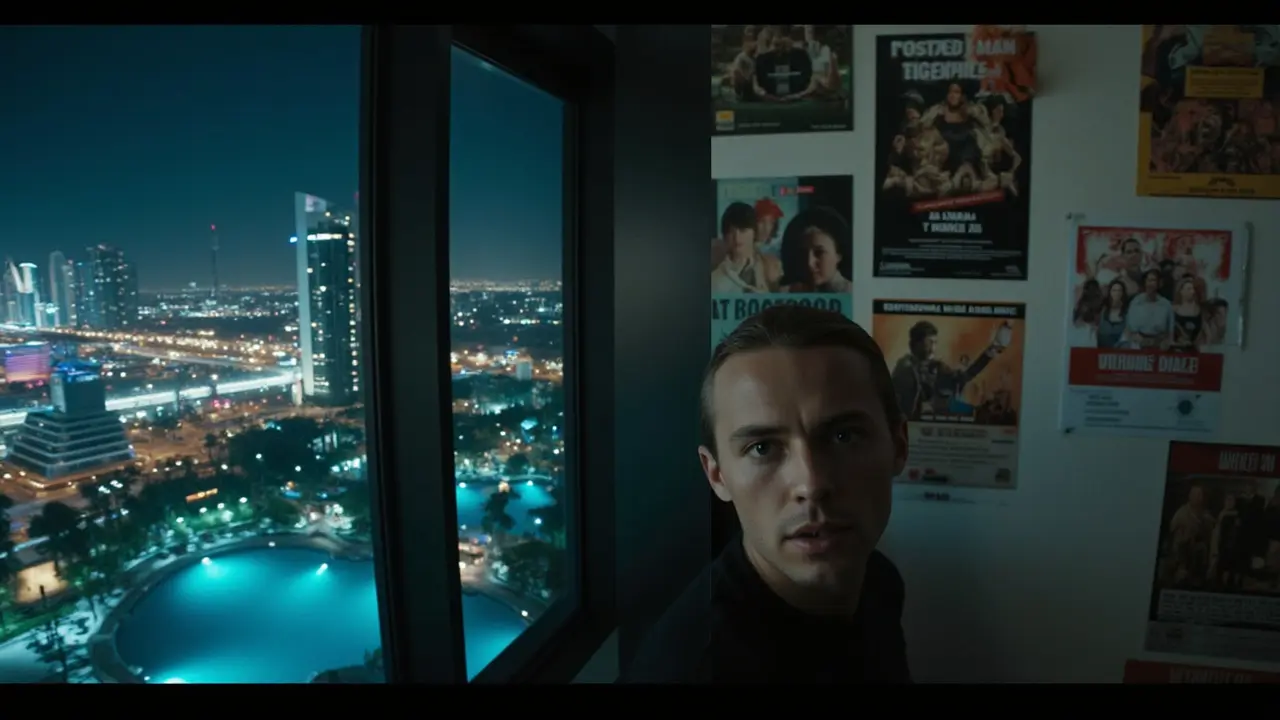
Staying Safe: Essential Tips, Real Stories, and How to Recognize a Scam
So, what do you do if you’re living, working, or even just vacationing in Dubai and want to have a wild night? First tip: keep your fun above board. Dubai’s legal bars, karaoke spots, high-end lounges, and hotel nightclubs provide a lively scene—without the risk of a midnight police raid. Plenty of regular bars do push the envelope, especially in hotels catering to Western or Russian tourists, with live music, suggestive shows, and hostesses. But when the signs turn to coded suggestions about private backrooms or “special friends,” you’re stepping onto thin ice.
Ever had a taxi driver suggest a “private girls’ club” after midnight? That’s your red flag. These drivers often get commissions for deliveries, and are quick to disavow any knowledge if something goes wrong. Another tip-off: fake drink menus, mandatory minimum charges, or an aggressive up-sell at the door. If a bar insists on collecting your passport or holding your ID for “security,” walk away. That’s a classic set-up for overcharging or, worse, blackmail.
One frequent scam works like this: a new friend or host invites you to a hidden venue for “VIP entertainment.” Once inside, you order a drink, enjoy a “show,” then get presented with a bill for thousands of dirhams—sometimes five or ten times what you expected. Argue, and you might find yourself locked in, threatened, or facing calls to friends who handle things physically. Pickpocketing and theft are less common in Dubai than other big nightlife cities, but insider theft—especially from drunk, distracted, or compromised guests—does happen. Keep your valuables close, and never hand over your passport or credit card without a clear reason.
Here are some pro tips to avoid trouble in Dubai’s nightlife scene:
- Stick to well-known, reputable venues—think brand-name hotel bars or lounges with visible hotel management.
- Never hand over your passport, wallet, or phone at the door or to a third party.
- If offered “private entertainment” or dances, politely refuse. If you’re harassed, tell hotel security—most big hotels want to avoid police attention.
- Check your bill before signing or paying in advance, and watch out for added or inflated charges.
- Avoid using unlicensed taxis or following strangers to an “off-site party”—these are classic setups for crime.
- If you see anything that feels off, trust your gut—leave immediately and don’t look back.
Let’s zoom out with a real-life anecdote: In March 2024, a UK financial advisor was detained overnight after police raided a “lounge” in Jumeirah that was secretly offering strip shows. She’d gone with coworkers, assuming the event was above board, only to spend fourteen hours in jail, fined, and then deported without recourse. No charges stuck to the lounge’s actual owners—who never even appeared in court.
Another expat—a Russian engineer—was lured by a friend’s promise of cheap drinks and fun at a downtown “party flat.” The night ended with his credit card maxed out, a missing watch, and a call from local CID asking awkward questions. Both stories aren’t isolated—they appear on expat forums and Dubai news sites every year, as new arrivals ignore warnings in search of “exclusive” Dubai nightlife.
On a positive note, Dubai’s legitimate club scene is thriving. The city hosts world-class DJs, beach parties, and high-energy dance nights that are 100% above board. If you want the wild side, stick with these and avoid the whisper network.
For workers, NGOs like Ewaa and the Dubai Foundation for Women & Children offer some support and hotlines for abuse and trafficking, but help comes after—never before—the trouble hits. So, if you see someone who looks trapped or uncomfortable in a club or bar, report it discretely to hotel management or, if safe, the police. Don’t get involved on your own; Dubai’s laws don’t often favor Good Samaritans acting outside the approved channels.
Here’s a quick reference table to help you sort safe nightlife from trouble:
| Venue Type | Red Flags | Safe Alternatives |
|---|---|---|
| Hidden clubs, backroom lounges, “private apartments” | No signage, bouncers, fake menus, passport collection, no receipts | Hotel bars, restaurants with live music, legal dance clubs in tourist areas |
| Taxis suggesting “girls’ clubs” or “special shows” | No receipts, cash-only, vague location, aggressive upsell | Official ride-hailing apps (Careem, Uber), hotel car services |
| Illegal strip clubs | Codewords only, no photos, phone possession banned at entry | Licensed entertainment venues, hotel-hosted theme nights, brunches |
Dubai’s best nightlife doesn’t need secrecy. If you stick with the city’s legal club scene, you’ll party safely and avoid the real-life nightmares of strip clubs gone wrong. Tempted by an invite into the underworld? Remember, the house always wins, and in Dubai, the stakes are higher than you think.

Damon Ferris
I work professionally as an escort and love to share my unique experiences from Dubai’s vibrant entertainment scene. I enjoy writing about my adventures and the evolving trends in the escort world. My passion is to offer insights that help others understand the social dynamics and culture of luxury entertainment. I aim to connect readers with a different perspective on Dubai through entertaining stories and reviews.
About
Discover escort UAE in our blog! Uncover the UAE’s nightlife, premium companionship, and discreet elegance with unique stories and insights. Start your journey today


